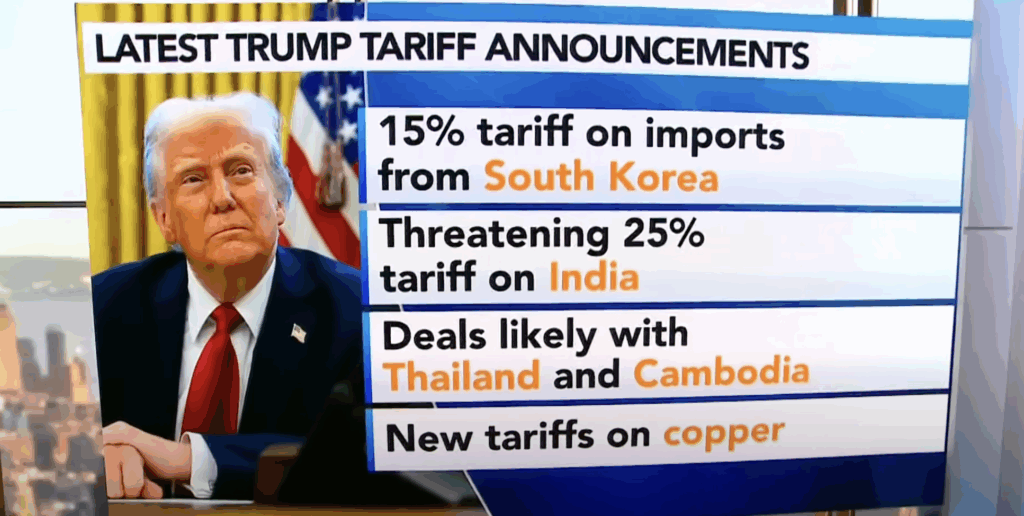Trump’s tariffs are not authorized by Congress

And several more federal judges have noticed:
Federal appeals court judges on Thursday sharply questioned President Donald Trump’s authority to impose sweeping tariffs on foreign trading partners under an unprecedented use of emergency powers.
Several judges of the Washington, D.C.-based Federal Circuit Court of Appeals repeatedly wondered how Trump could justify the broad tariffs using a 1977 law known as the International Emergency Economic Powers Act, or IEEPA, that presidents have used to set economic sanctions and other penalties on foreign countries — but never previously tariffs.
“One of the major concerns that I have is that IEEPA doesn’t even mention the word tariffs anywhere,” said Judge Jimmie Reyna, an Obama appointee.
Other judges seemed to agree that Trump had used a statute intended to give presidents emergency powers to deal with an international crisis to, instead, usurp a key congressional responsibility.
“It’s just hard for me to see that Congress intended to give the president in IEEPA the wholesale authority to throw out the tariff schedule that Congress has adopted after years of careful work, and revise every one of these tariff rates,” said Judge Timothy Dyk, a Clinton appointee.
The appeals court heard nearly two hours of oral arguments before a packed courthouse on a pair of lawsuits, each challenging tariffs imposed by Trump in a series of executive orders he signed between February and April. One case was brought by private companies; the other was brought by 11 Democratic-controlled states.
Some of the judges noted that large swaths of the nation’s complex and longstanding trade procedures would essentially become superfluous if the president could simply declare an emergency without review by courts — as the Trump administration contends — and impose tariffs of any size and duration. They also emphasized that tariffs imposed by President Richard Nixon under an older emergency power only survived legal challenges because they were targeted at a narrow problem and had a clear expiration date.
As I’ve said before, you don’t need “major questions” doctrine or any other ad hoc canon of statutory construction to find these tariffs ultra vires — the statutory text does not authorize these tariffs and the implication of finding otherwise would be inconsistent a Constitution which squarely places the power to tax in the legislative branch. But if you take Biden v. Nebraska as establishing an actual legal precedent, this is the easiest case in the world — the case for executive usurpation is far stronger here. If the Supreme Court were something that could reasonably be construed as a court of law rather than the executive council of the Republican Party this would settle the question, but alas.
